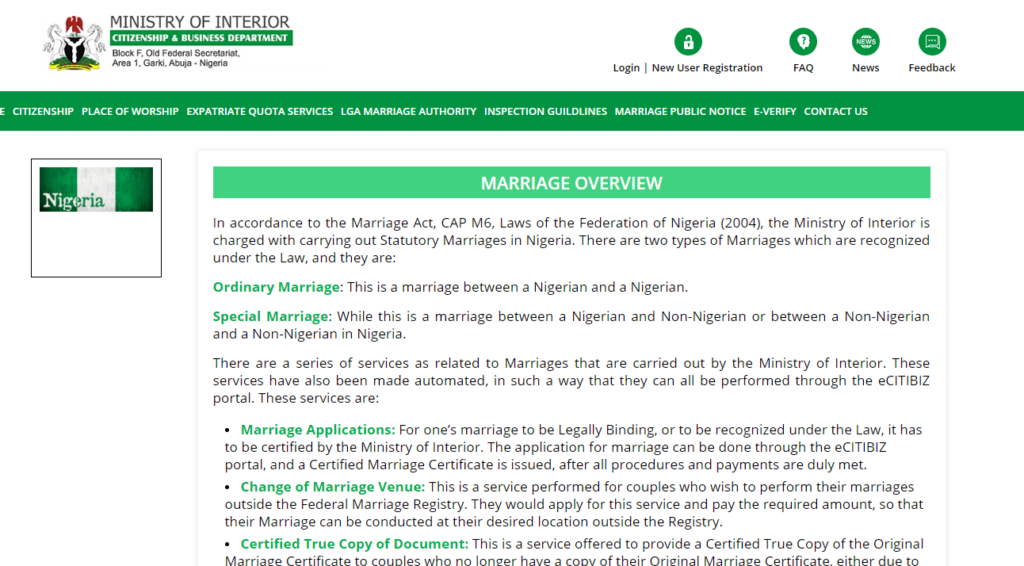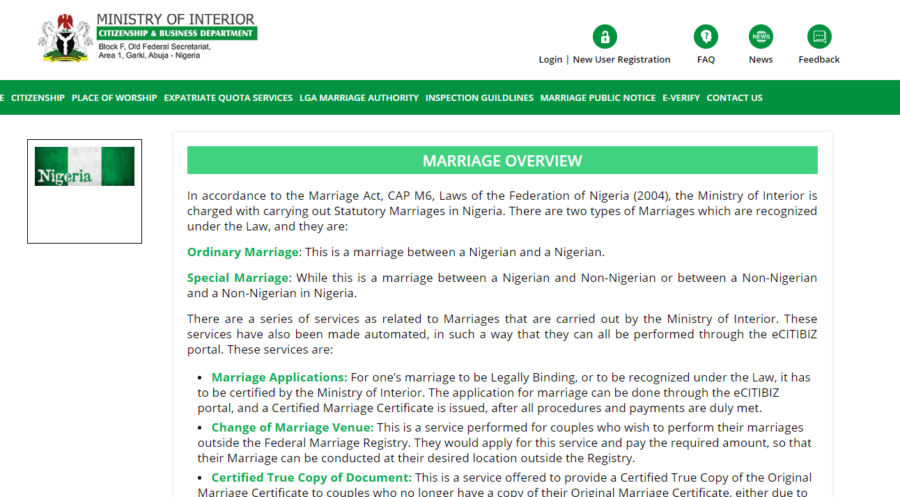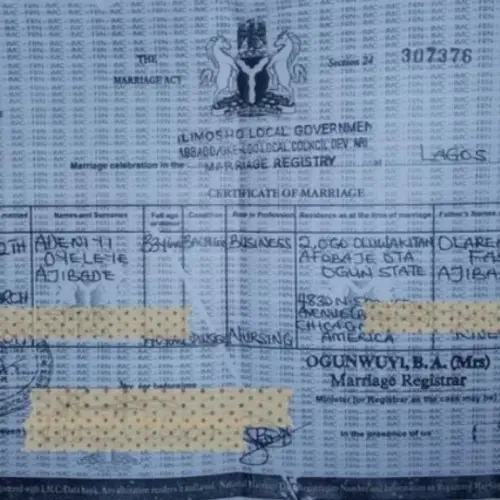Here’s a comprehensive guide on how to get a marriage certificate in Nigeria, addressing the various types of marriages recognized in the country:
Understanding Marriage Types in Nigeria
Nigeria recognizes three primary types of marriages:
- Statutory Marriage: This is conducted at a licensed registry under the Marriage Act. This type is legally recognized within Nigeria and internationally.
- Customary Marriage: This follows the traditions and customs of a couple’s ethnic group. Evidence of a customary marriage often involves family members and community recognition.
- Islamic Marriage: This follows Islamic rites and is conducted in line with Sharia law.
Getting a Marriage Certificate for Statutory Marriage

Statutory marriages, performed in designated registries, typically result in automatic issuance of a marriage certificate. If you don’t have one, follow these steps:
- Choose a Registry: Federal Marriage Registries are present in major Nigerian cities. Some states also have their own registries.
- Meet Eligibility: Both individuals must:
- Be at least 18 years old (parental consent under 18)
- Not be currently married to another person
- Required Documents: Commonly include:
- Birth certificates or declarations of age
- Passport photographs
- Identification documents (e.g., National ID, driver’s license)
- Affidavit of bachelorhood/spinsterhood
- Evidence of divorce or spousal death (if applicable)
- Notice of Marriage: Complete and submit this form, typically available at the registry. It’s publicly displayed for 21 days to allow for any objections.
- Ceremony and Fees: If no objections arise, schedule a marriage ceremony at the registry. Pay required fees.
- Marriage Certificate: After the ceremony, you’ll receive the official marriage certificate.
Customary and Islamic Marriages
These types might not automatically provide a formal marriage certificate. Here’s what you might need to do:
- Documentation: During or after the traditional or Islamic ceremony, ensure you have some form of documentation confirming the marriage. This could be a letter from the presiding Imam or family heads involved.
- Statutory Registration (Optional): While not mandatory, you can optionally register your customary or Islamic marriage at a Federal Marriage Registry to obtain a legally recognized certificate. You’ll need to provide evidence of your earlier marriage ceremony.
Important Points
- State Variations: Some procedural details may vary slightly across states. Contact your intended registry for their specific requirements.
- Ministry of Interior: The Federal Ministry of Interior oversees marriage registration in Nigeria. Their website (https://ecitibiz.interior.gov.ng/marriage/overview) provides further information.
- Legal Assistance: If you have a complicated situation or want extra assurance, consult a legal practitioner specializing in family law in Nigeria.
Read also:





